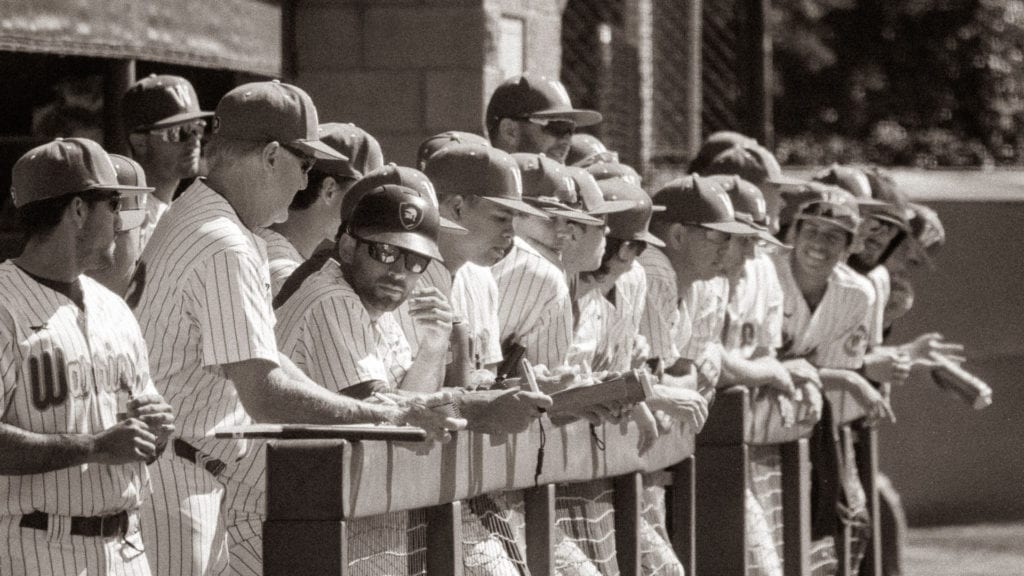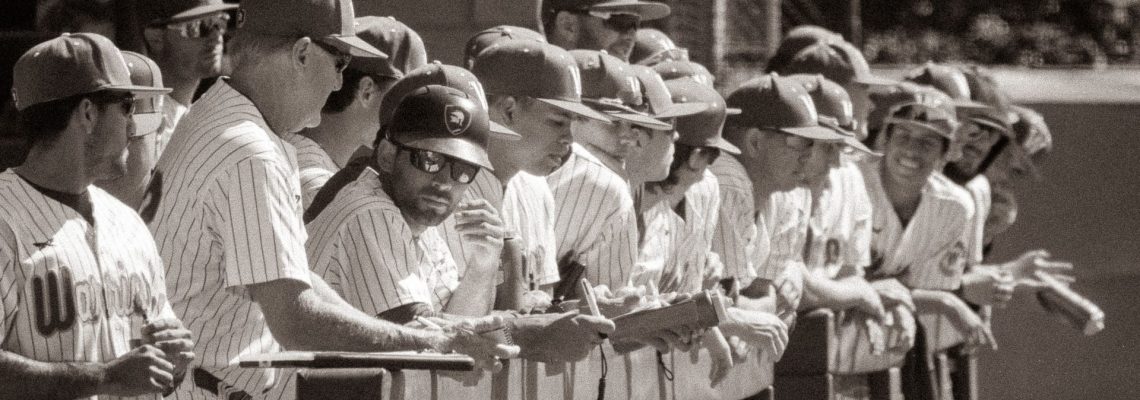*This article may contain product links which pay me a small commission if you make a purchase. Learn more.
I walked up to my dark blue locker, removed my hat and placed it next to my mitt in the top cubby. I pulled my white jersey over my head, and dropped it lazily onto the floor in a heap by my feet. As I wondered what the post-game spread was, I turned around to steal a look…
…and found myself nose-to-nose, staring into the furious eyes of our 6-foot, 200lb centerfielder. Carlos Guzman, an intimidating outfielder of Puerto Rican descent, was one of our best hitters. Hailing from Brooklyn, New York, he was a guy you would never pick a fight with, a guy you could sense had some Hulk strength lurking beneath his tattooed surface.
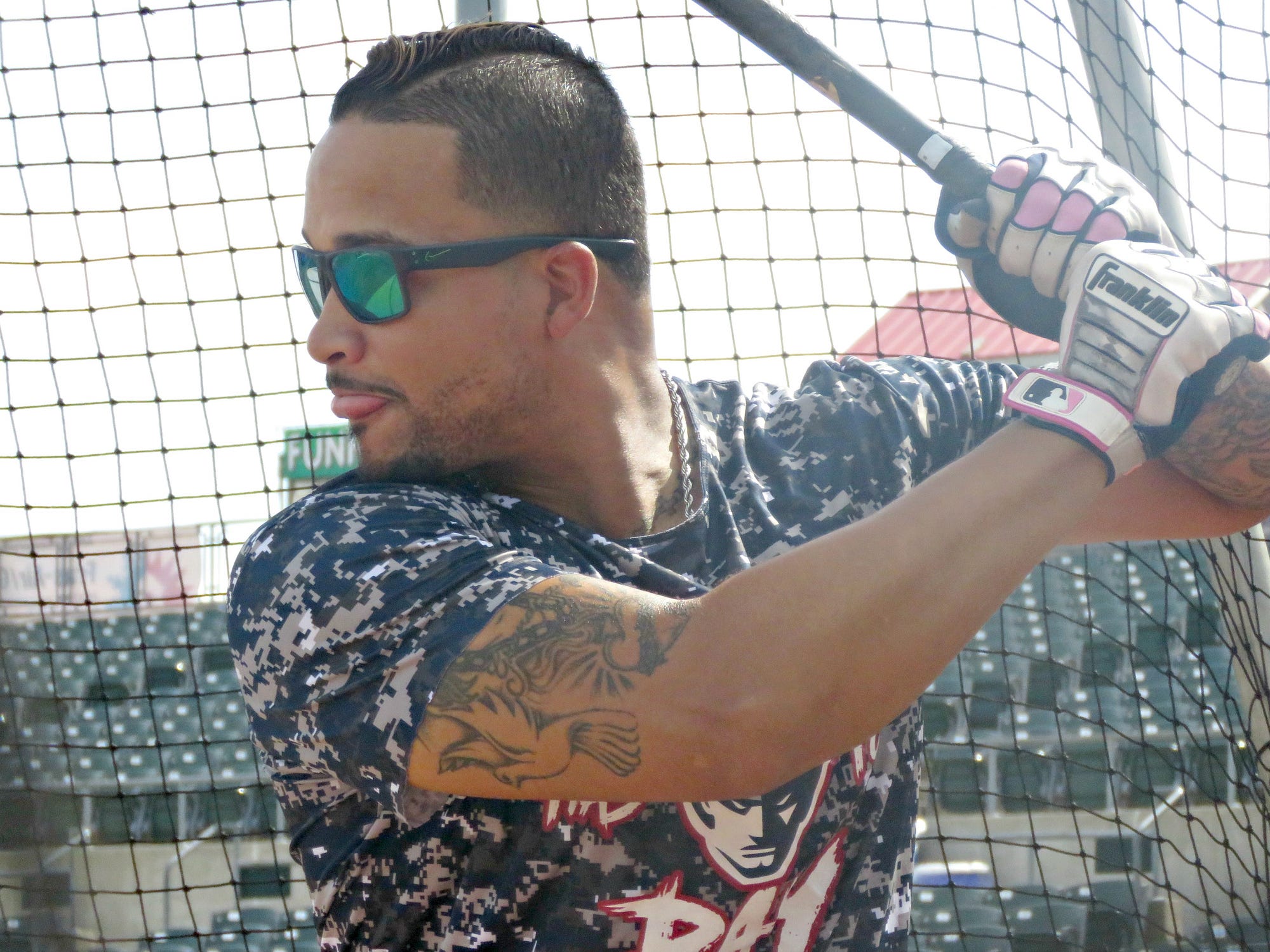
And here he was, his eyes bulging with rage as they fixed on mine, his brow furrowed and his teeth clenched. He was furious, and apparently furious at me. My mind raced….why is this happening and what do I do?
You got a f**king problem, Blewett? You talkin’ s**t?
The moment, as I searched for the correct answer is still crystal clear: the voice in my rallied to find a solution, the right response. I remember asking myself:
What can I say right now that doesn’t get me punched in the face?
I paused for what seemed like an eternity, as I diverted my gaze to think. I don’t remember what my answer was, but as the first utterance left my lips, I was shoved like a rag doll straight back into my locker, which was just wide enough to fit my 6′, 195lb frame inside with loud CLANK. My teammates, who had gathered close by in nervous anticipation, swarmed Carlos as I tried to get back onto my feet and defend myself.
Two Very Different Paths
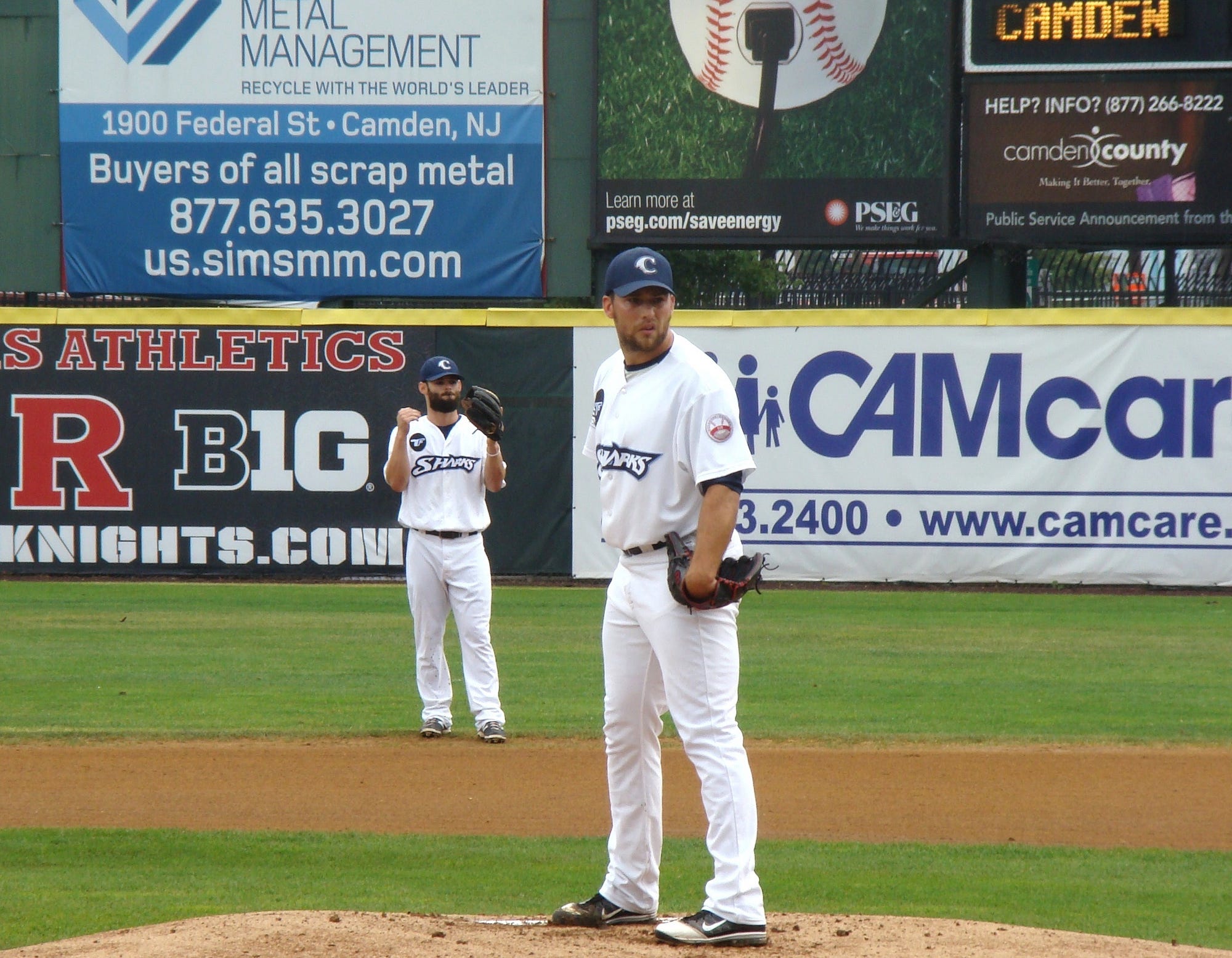
I was a relief pitcher in my fifth season of pro baseball, Carlos an outfielder in his ninth. I had recently been selected for my second All-Star game at age 29, in what was a breakout season following a comeback from my second Tommy John surgery. It was a long road back, and I had finally found some footing.
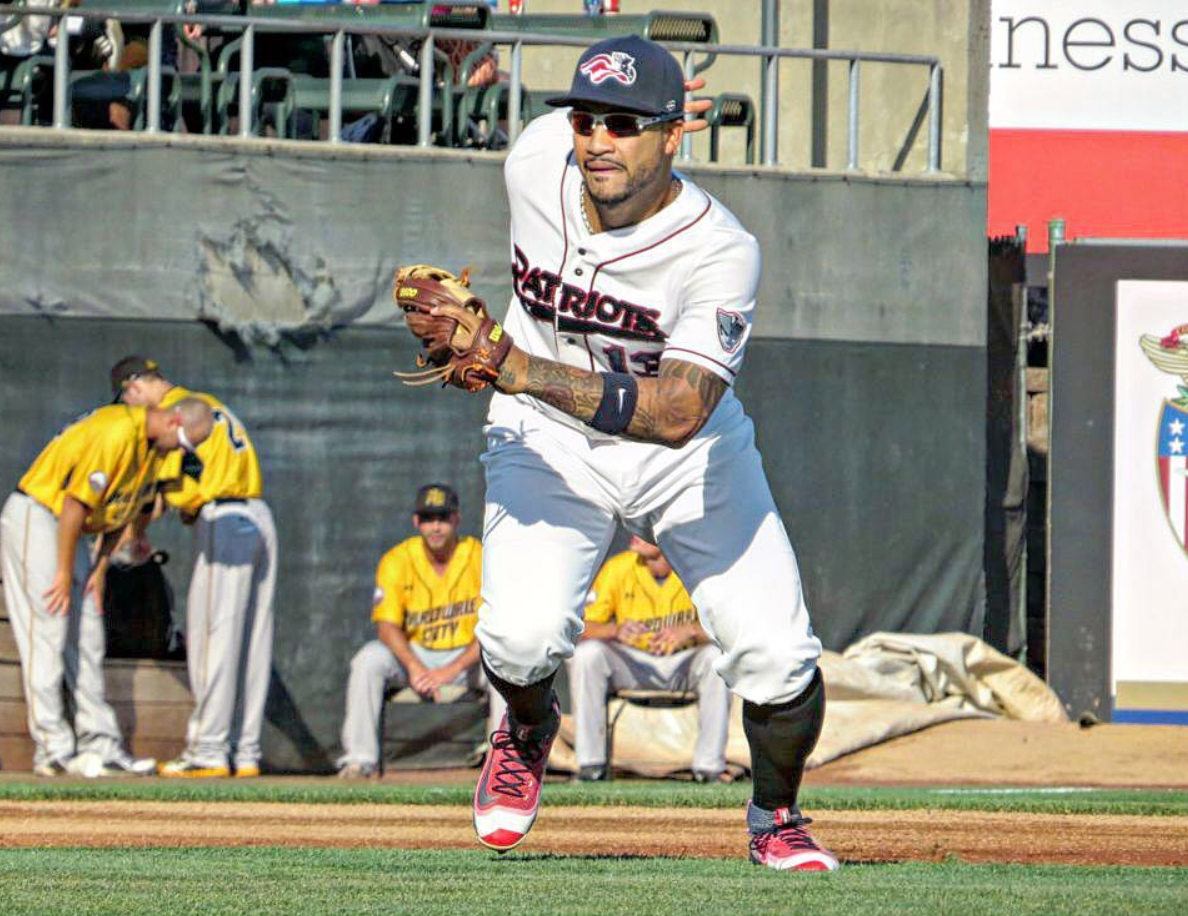
Carlos was a journeyman outfielder, signing professionally with the New York Mets out of Brookdale Community College. He was a good player and reached the higher levels of the Minor Leagues before being let go and bouncing around Independent and foreign league baseball for a number of seasons.
He and I converged at very different points in our careers in Camden, New Jersey, where we played for the Riversharks of the independent Atlantic League. I was fighting for a chance to have a career like his, and he was fighting to get another chance with an MLB club.
It All Started With a Glare.

It was late July, and I had pitched extremely well all season. Yet in mid-July, I found myself in a pitching slump and was struggling to break out of it. Bad pitches were getting hit. Good pitches were getting hit. Nothing I did could get a hitter out. I was scrambling, feeling desperate to right the ship. I felt my ERA rise and my status as a lock-down reliever slipping away. I needed every bit of help I could get.
The incident started when the 9-hole hitter of the opposing Somerset Patriots hit a line drive to center field. The ball was hit hard, but not high enough to be more than a harmless single…or so I thought. Carlos came in a step, misread it, then turned to run after it sailed over his head. As it rolled to the wall, I glanced back to watch him merely jog after it, in the same way I had felt he had jogged after a few balls recently.
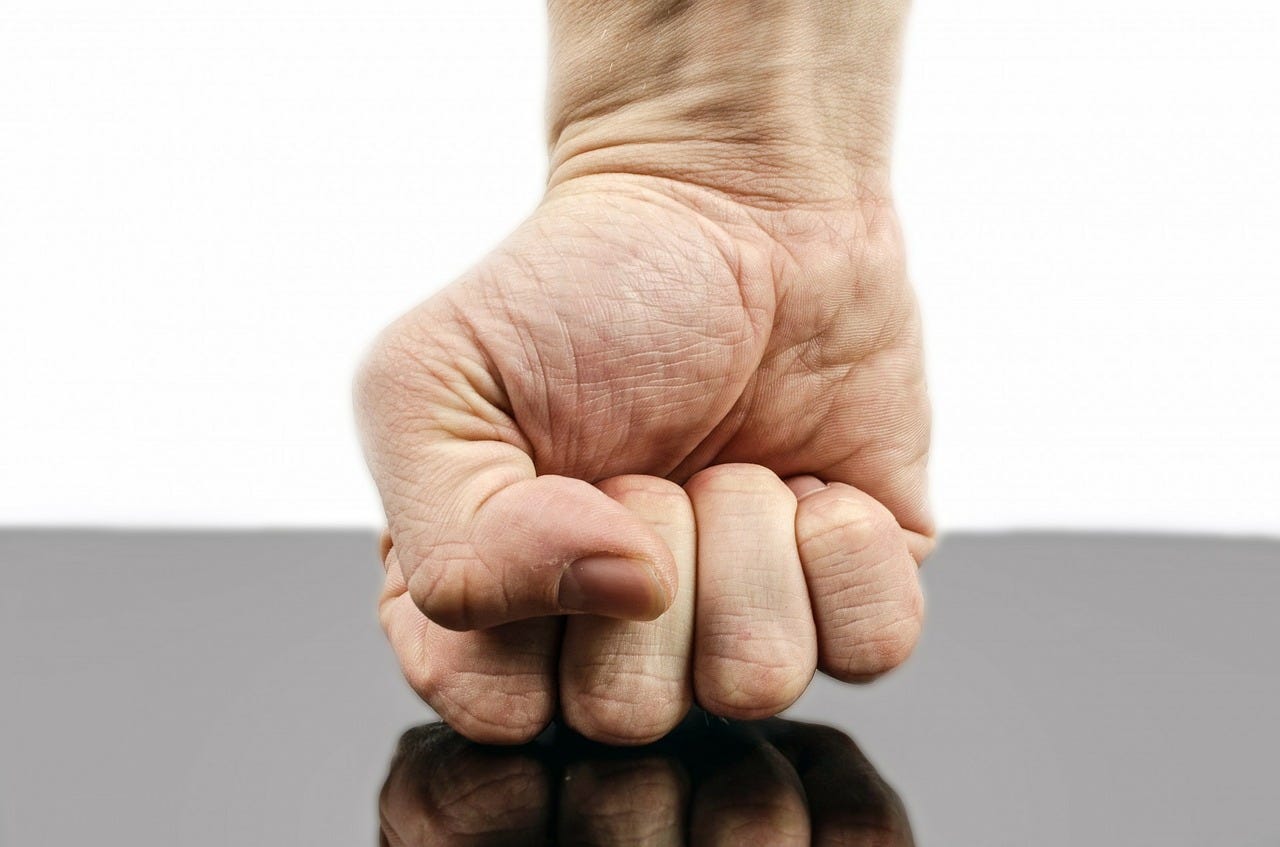
I clenched my jaw and rolled my eyes in frustration as I veered left to back up third base, where the batter finally trotted in. This was the last thing I needed — for a single to become a leadoff triple.
I was sure I didn’t make any gestures of frustration on the field. I was sure I didn’t show him up. I was sure that my frustration was nearly boiling over, but I still knew the rules. Act like it didn’t faze you.
I moved on, tried unsuccessfully to keep the runner from scoring, and went down to the bullpen to vent after my inning was over. The bullpen was the pitchers’ embassy, a safe place where what happens in the bullpen, stays in the bullpen.
Effort.
It wasn’t that he misplayed the ball, and I was never the type of teammate to get mad about errors. Carlos was a good outfielder. I also knew abundantly well that I wasn’t perfect, and I typically kept my cool about it. I ordinarily wasn’t that guy.
It was the jogging that got to me, the level of effort that I felt didn’t match my own. In recent weeks Carlos’ effort had been questioned by a lot of us as he appeared to run at less than 100% after batted balls. The pitching staff collectively felt that he wasn’t giving us his best, and on that day, I got the feeling that he barely wanted to be on the field.
…And He Picked Up On It.
Maybe someone in the dugout saw that I was visibly unhappy when I walked in from the mound, and relayed it to him. Maybe a snitch from the bullpen passed my vented frustrations through the grapevine. Or maybe it was just that he could tell. I didn’t know.
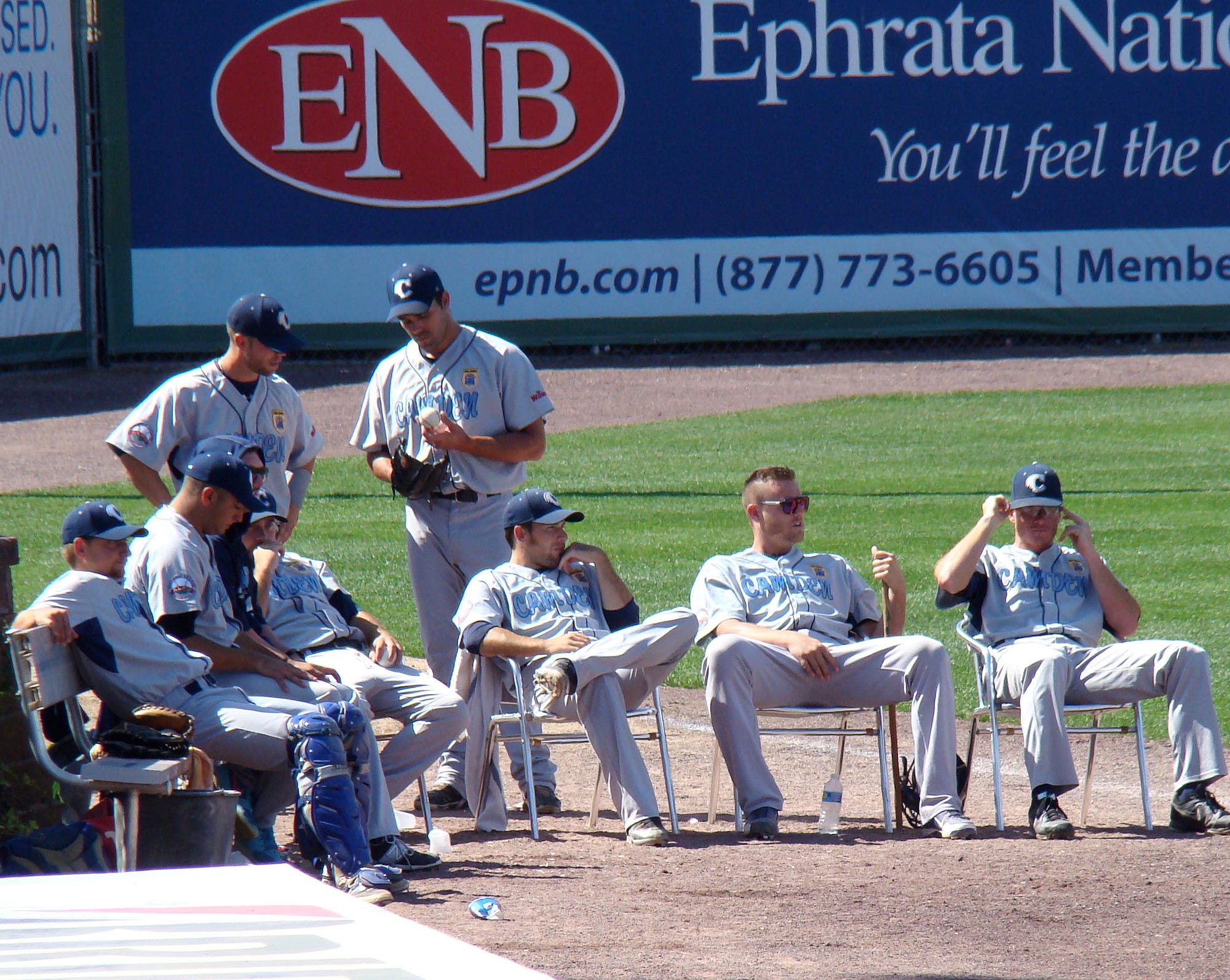
Naturally, he didn’t take kindly to his effort — an extension of any ballplayer’s manhood — being questioned. By the end of the game my focus had again shifted away from today and onto tomorrow. I was re-focusing on making tomorrow better, and getting back on track. After all, if I didn’t let the 9-hole hitter smoke that pitch, that triple would never have happened. Over the course of 140 games in close-quarters with one another, little squabbles come and go. I vented and moved past it.
But He Hadn’t.
My college pitching coach, Tim, was there in attendance and we chatted after the game for about 15 minutes, which made me the last guy in the clubhouse. I planned to meet Tim across the street for a quick dinner before he hit the road back home to Maryland.
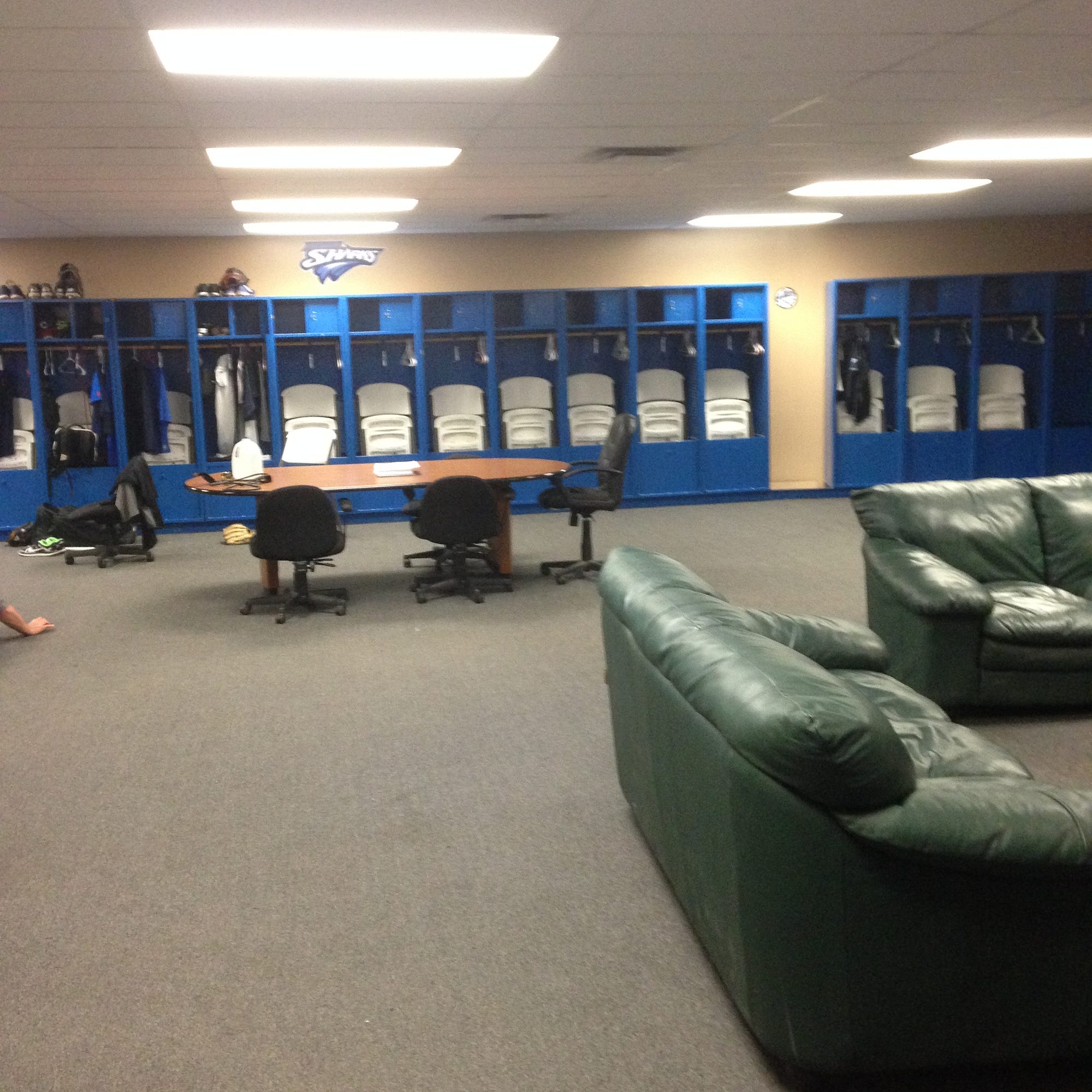
So I hustled into the clubhouse after our chat, returned my cap and mitt to my blue locker, then turned to find a furious Carlos nose-to-nose with me, steaming-mad and ready to fight.
What can I say right now that doesn’t get me punched in the face?
There Was No Answer.
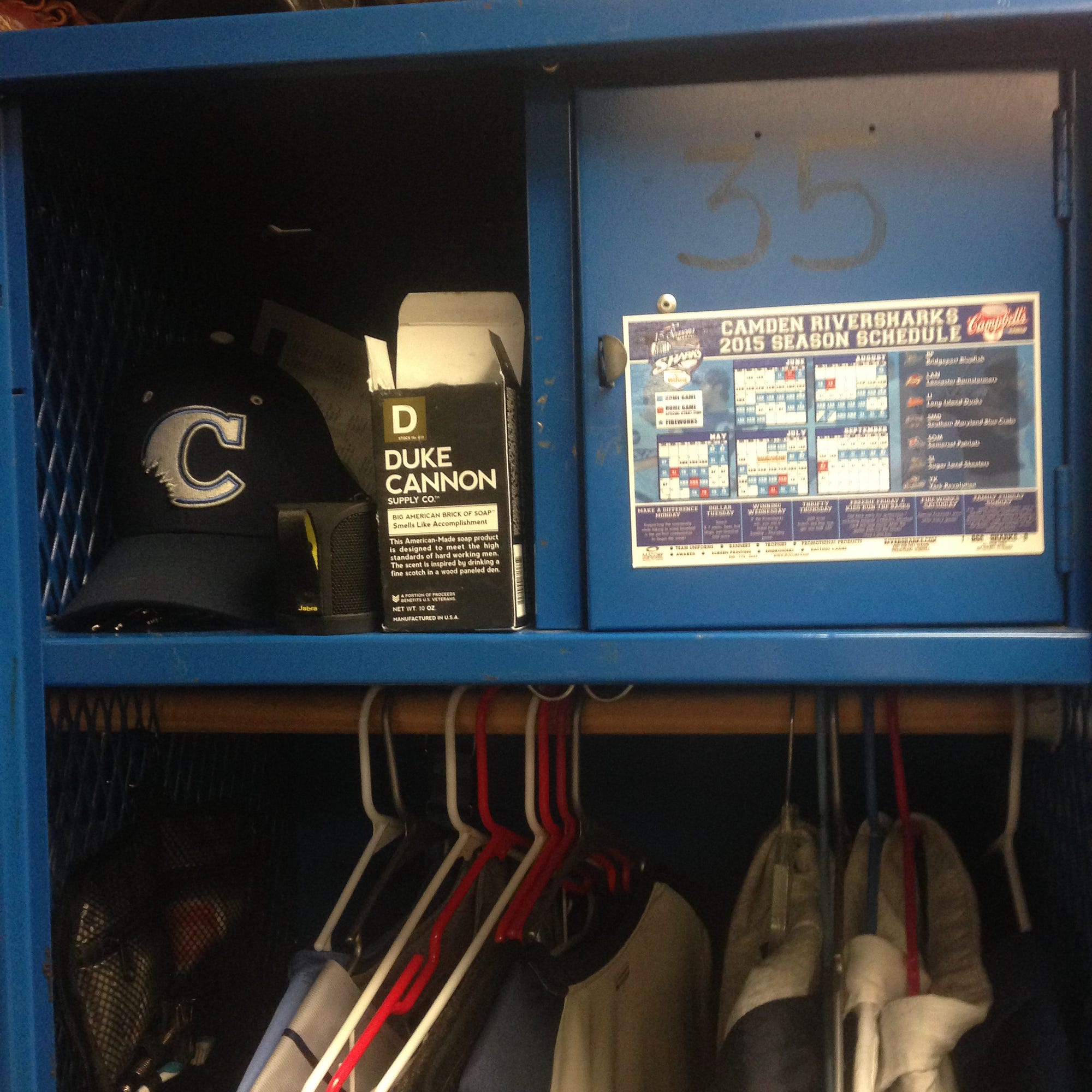
I was crumpled in my locker before I knew it, struggling to get up. Six of my teammates were barely enough to hold Carlos back as he raged, promising at the top of his lungs that he’d f**k me up. The only thing I could think to yell back was that I hadn’t said anything about him. After my inning I had moved on and hadn’t even considered that an altercation was brewing before I was fully in one.
Our manager, World Series Champion Chris Widger, rushed in a moment later, hearing the commotion. He ran toward the front to help break up and diffuse the anger. We hadn’t been playing well, and this was icing on the cake for him as well, now seeing us at each others’ throats.
Anyone who fights in this clubhouse will be released. Immediately. Mark my words.
That was the antidote, and the Hulk in Carlos quickly returned to Bruce Banner. Widge ordered him into his office to talk. The rest of us slowly let our guard down and went about our business. I showered while it seemed safe, keeping my back to the shower head to prevent an ambush. I then hurried out to meet Tim at the bar across the street.
Oh Fudge!
Tim is one of the kindest, most genuine men I’ve ever met. In his 50s, he wears a grey mustache and walks with a slightly lopsided gait, his ankles having given out on him after decades of baseball. His eyes would light up when I’d start to elaborate on his signature question:
What have you learned this season?
Few people I’ve met love baseball as much as Tim, and few people listen as intently as he does. The man never waits to talk, but rather hangs on in eager anticipation of the next baseball anecdote, any new piece for the huge puzzle he’s assembling called Baseball.
I explained the altercation that had just taken place. Tim refused to swear, even if it made him sound a little silly and curse word might more adequately descriptor. He flew in the face of the typically crass world of baseball slang.
Fudddddge! That just happened? He’s a BIG guy.
Fudge was right — I’d narrowly escaped a visit to the land of the unconsciousness if my teammates hadn’t grabbed him. Physically we were about the same size, but I wasn’t going to win that fight.
Tim rightly asked what would come next. Well, I said, I’d be in the clubhouse and on the field with him again tomorrow. We’d have to settle it somehow. I also felt bad. I liked Carlos, and he was an outspoken supporter of mine. 95% of the team had played at a very high level — Double-A, Triple-A or the Majors. I hadn’t. But though it would be easy for a guy who had been there to make me feel like he was better than me because of it, that wasn’t Carlos.
I was a late bloomer and an often-injured pitcher. I didn’t know if I’d ever get a chance with an MLB club. But I kept the faith on an outpouring of support from a handful of my teammates who had been there. They told me that I was good enough, that I would get my chance if I kept doing what I was doing.
Carlos was one of my biggest cheerleaders. When I pitched well, he was often the first to give me a pat on the back with some words of respect. He’d explain that he’d played with some great players, and that he thought I could hang with any of them.
Fudge Was Right.
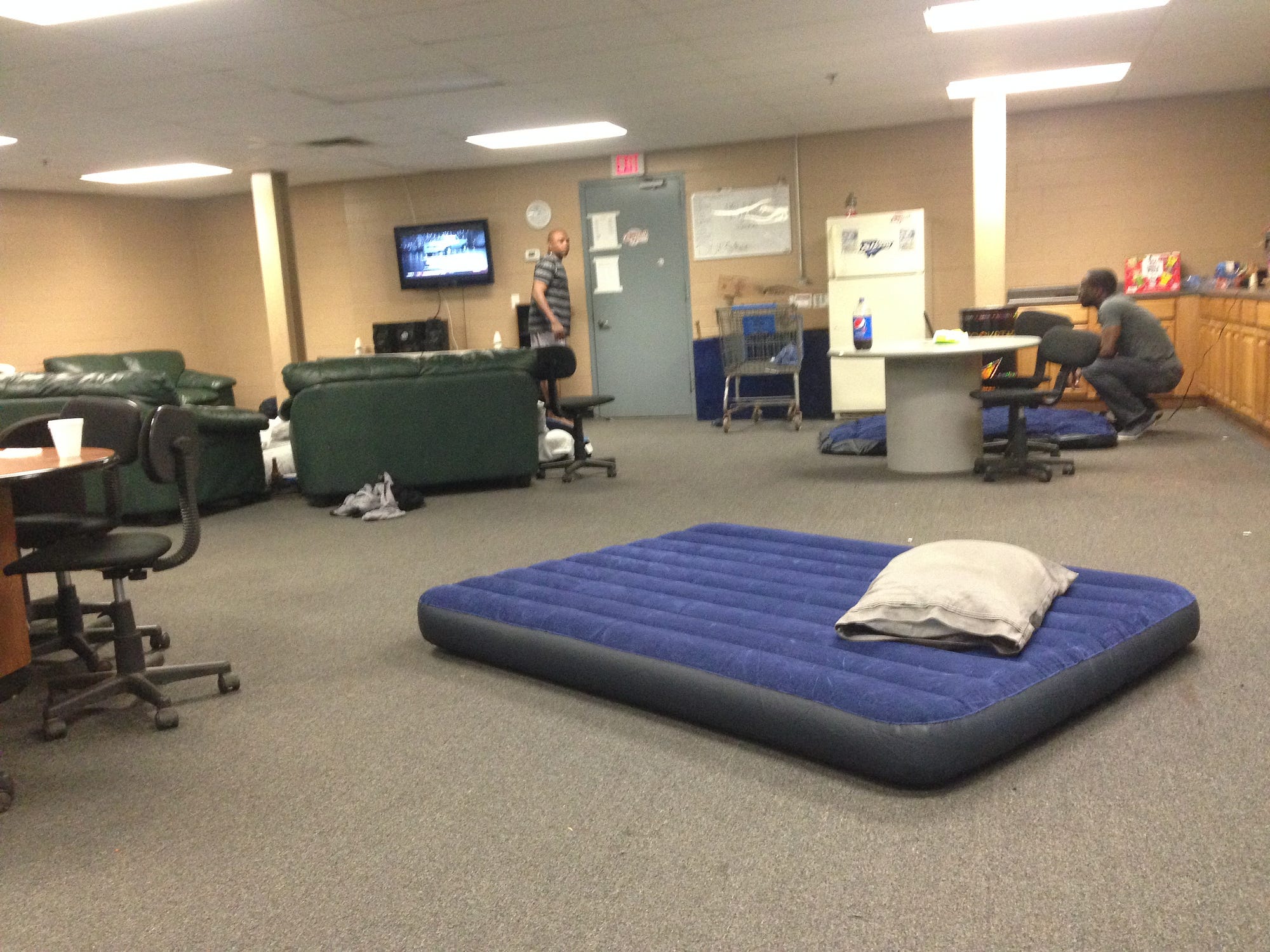
A number of the players either lived in the clubhouse, in the empty dormitory building in downtown Camden, or a few minutes away in crowded one-bedroom apartments shared by 3–5 guys each.
So the bar across from the ballpark was a frequent hideaway by many of us not feeling motivated to go home after a game. Carlos was in that same boat, and sure enough, I spotted him walking over as Tim and I started to wrap up.
He sat down at the bar across the room and waited for his order. I pointed him out to Tim and explained that it was probably best if I go bury the hatchet while I had a chance. He agreed, we hugged and he departed. Carlos grabbed his to-go order and left just a minute before us. I yelled out to him as he walked across a vacant parking lot, the Philadelphia skyline proudly piercing the partly cloudy sky just across the river.

Hey, can we talk?
He stopped, agreed that we should talk, and went first.
Blew, I’m sorry — I should have never put my hands on you. No matter how I felt about it, I should never have put my hands on you. Sometimes that side of me just comes out, because it was like that where I grew up, thats what you do when someone challenges you. But I just want you to know I should never have done that.
I nodded, and it was my turn.
I’m sorry too. I’ve been pitching like crap, and it’s seemed recently like I can’t catch a break. I‘ve been frustrated, feeling like my chance at getting somewhere is slipping away. So when that line drive sailed over your head, it was just another thing, another bad break, but that stuff happens. But, I’ll be honest — I’ve felt like you don’t run hard after balls at times. A few of us have felt that way, and I think that was what made me the most upset.
I also wanted to know if I did something on the field to show him up, because I took pride in not showing emotion on the field, and I was never that guy to blame other people or show them up. I assumed I fell short and did something that set him off, but I wanted to know what.
His reply? He could just tell…
I could just tell the way you looked at me in the outfield after that play. And I know I can’t run as hard as I could earlier in the season — my ankles and heels are killing me, but I get them taped and get PT and still play because I know the team needs me in the lineup. It’s not that I’m not running, it’s just it’s tough to run right now, but I didn’t want to make excuses about it and come out of the lineup.
If I had paid attention, I probably would have realized that. I was in the training room a lot myself, getting therapy on my elbow.
And when you looked at me that way, it just hurt because I’ve always been one of your biggest fans. I was so happy for you when you got selected to the All-Star team, and I’ve always been behind you 100%. And for you to look at me that way, man, it just hurt. I felt like I’ve had your back and you didn’t have mine.
He was right — he had been one of my biggest fans. I apologized and explained that he was right — I owed him better than that.
And what you guys don’t know is that my daughter has surgery coming up — it’s a major surgery and the doctors said there’s a chance she could die. I’m sure it will be fine, but there’s always that chance and it’s been weighing on me. I don’t know what I’d do if I lost her. And I know I shouldn’t take that out on anyone else but I’ve kept it to myself. I’m really worried about it and it’s hard to keep focused.
We talked about his little girl and the surgery for a few minutes. The bigger picture became clear. A misplayed line drive wasn’t about the line drive at all — not for me, and definitely not for him.
You Just Never Know.
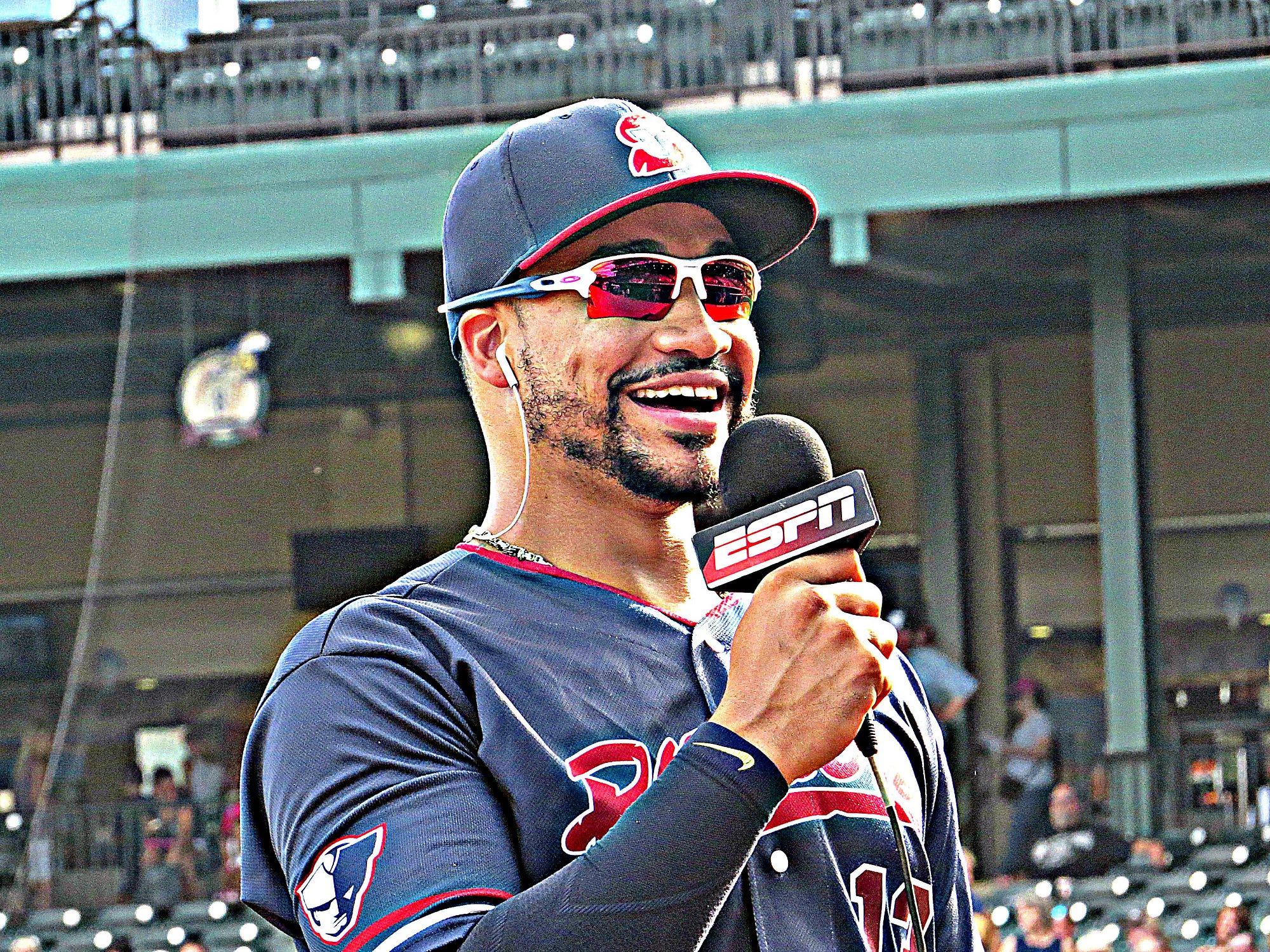
My frustrations weren’t much about Carlos — they were about my own failings. I took them out on him, unfairly making him the object of my frustration. He was always good to me, a friend who I let down.
I just happened to challenge his manhood at the worst possible time, and in doing so became the object of his anger.
I didn’t know he was playing hurt, I didn’t know his daughter was undergoing a risky surgery, and I lost sight of the fact that he was my friend; I let him down making my struggles his fault.
That one line drive had little to do with my overall performances, it just happened to be an unfortunate boil-over point. If I didn’t like it I should have just pitched better.
Life Is About Context.
I learned to look harder before making a rash judgment, to consider what I might not be aware of. Those in the intelligence community call an important unknown a Black Swan — a key piece of information that could change everything in a dialogue if discovered.
If I had taken the time to ask about how he was doing off the field, all of this could have been avoided. There was an explanation for every qualm. And the pettiness of a baseball game would have immediately been put in the proper perspective.
The dugout is a tough place to grow up sometimes. Close-quarter a bunch of alpha males, and you have a recipe for disaster. But moments like this one remind you that there’s a lot more behind the scenes than you might realize.
If in doubt, give the benefit of the doubt. You just never know.
-Dan Blewett
